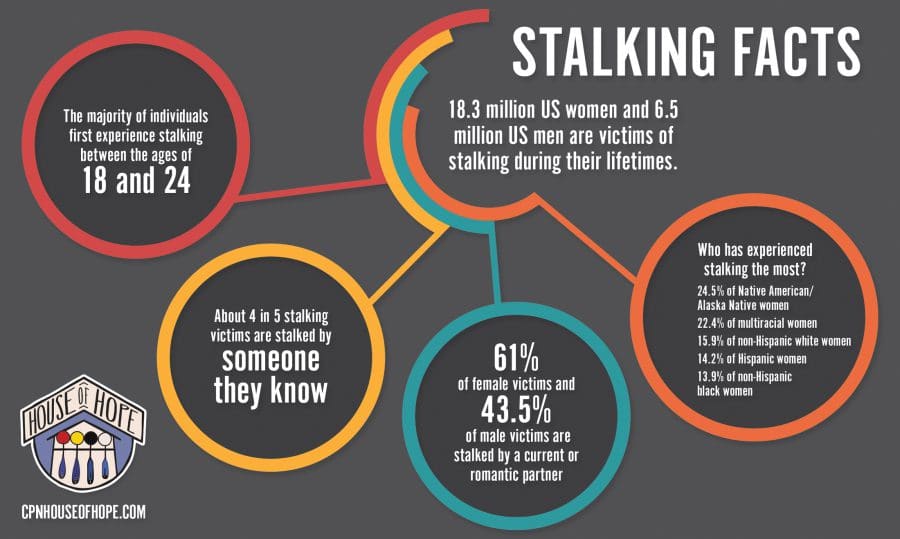By Kayla Woody, House of Hope Prevention Specialist
It is the beginning of a brand new year, the big 20, and if you haven’t caught the new second season of You on Netflix, which was released the day after Christmas, most will say you are probably missing out. This is Netflix’s latest psychological drama that follows a charming bookstore manager, Joe Goldberg, who falls for one of his customers, Guinevere Beck. He becomes obsessed with her and begins stalking her.

The show was one of the most successful offerings to date for the streaming giant and was viewed by over 40 million households in its very first month on air. However, the big controversy that most find in the show is that it sensationalizes stalking, making it feel like a normal part of dating. The show even includes a romantic twist with Joe’s actions toward Beck. It calls the viewer to be sympathetic of Joe with the constant depiction of his childhood throwbacks. It teaches young women and girls that this type of behavior is acceptable and attractive — that this is what real “true love” looks like. Some girls posted comments on social media after the first season aired, saying they fantasized about Joe “kidnapping them” and expressed their love for the character.
This is not how stalking victims feel in reality.
The month of January is focused on stalking awareness, and our main objective here at the House of Hope is to educate the public about the reality of stalking and how it effects victims. Stalking is defined as “any person who, willfully, maliciously and repeatedly follows or harasses another person in a manner that would cause a reasonable person to feel frightened, intimidated, threatened, harassed or molested.” According to the Bureau of Justice, more than 7.5 million people are stalked each year in the United States, and over half of those victims indicated that they were stalked before the age of 25. This puts teens and college-age students at a much higher risk.
So, what does a stalker look like? In the first season of You, Joe often followed Beck without her knowledge. He broke into her apartment and stole items. He hacked into her social media accounts, and he even tracked her whereabouts by GPS. These are very common forms of stalking, but other forms include:
- Sending persistent unwanted gifts
- Seeking information about a person through public records or online searches
- Damaging property
- Sending unwanted texts and emails
- Posting personal information about the victim and spreading harmful rumors
- Creating or manipulating situations to make contact with the victim
- Putting the victim in a challenging or harmful situation to play the hero
- Waiting outside the victim’s home, school or place of employment
- Persistently asking for a date
Stalking is considered a crime in all 50 states. Oklahoma classifies a first stalking offense as a misdemeanor punishable by either one year in jail and/or a fine of $1,000. The second offense, within a 10-year period of prior conviction, is classified as a felony punishable by imprisonment in a state penitentiary for a term that does not exceed five years and/or by a fine of not more than $2,500. Unfortunately, stalking is a highly underreported crime because it is difficult to prove when someone is being stalked, and victims are often not taken seriously because of the current misconceptions from society.
Victims are deeply impacted by the effects of stalking. They not only lose peace of mind, but often they deal with physical ailments like fatigue, fluctuations in weight and dizziness. Many times, victims lose sleep and begin to deal with depression, anxiety and even suicidal thoughts. It can also put a victim at financial risk. A survey conducted by the Bureau of Justice stated that “more than half of stalking victims lost 5 or more days from work,” and in many cases, the stalker vandalizes the victim’s property or assets.
Some stalking myths include:
- Only celebrities are stalked
- If you ignore stalking, it will go away
- Stalking is annoying but not dangerous
- You can’t be stalked by someone you are still dating
- If you confront the stalker, they will go away
House of Hope can help those who may be dealing with a stalker in their life. We assist anyone seeking safety by locating emergency shelters along with safety planning for the future. We have resources to put into place a victim’s protective order as well as court advocacy to follow through with placement of the VPO. Our advocates are trained in address confidentiality to help protect the location of the person affected by stalking. We can also provide many tips to help with the situation and to help get it under control.
If you or someone you know is experiencing stalking, intimate partner violence, and/or sexual assault and would like more information, please contact House of Hope at 405-275-3176 or visit us online at facebook.com/cpnhouseofhope.
